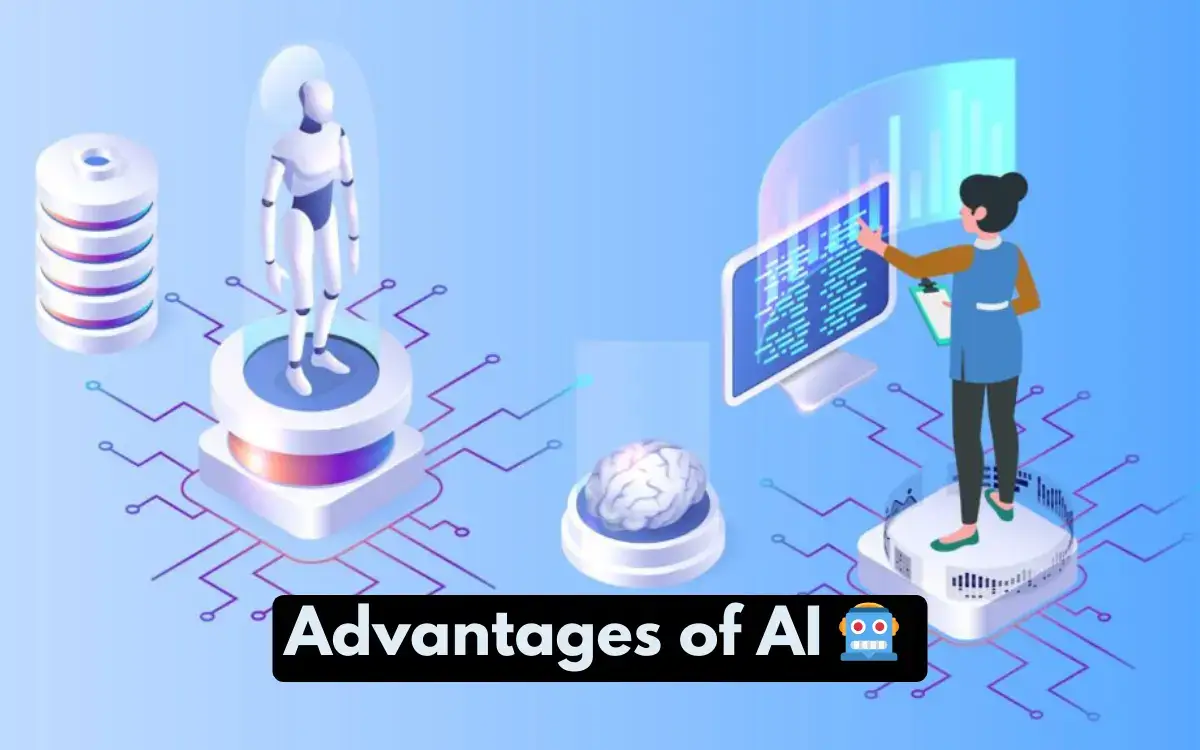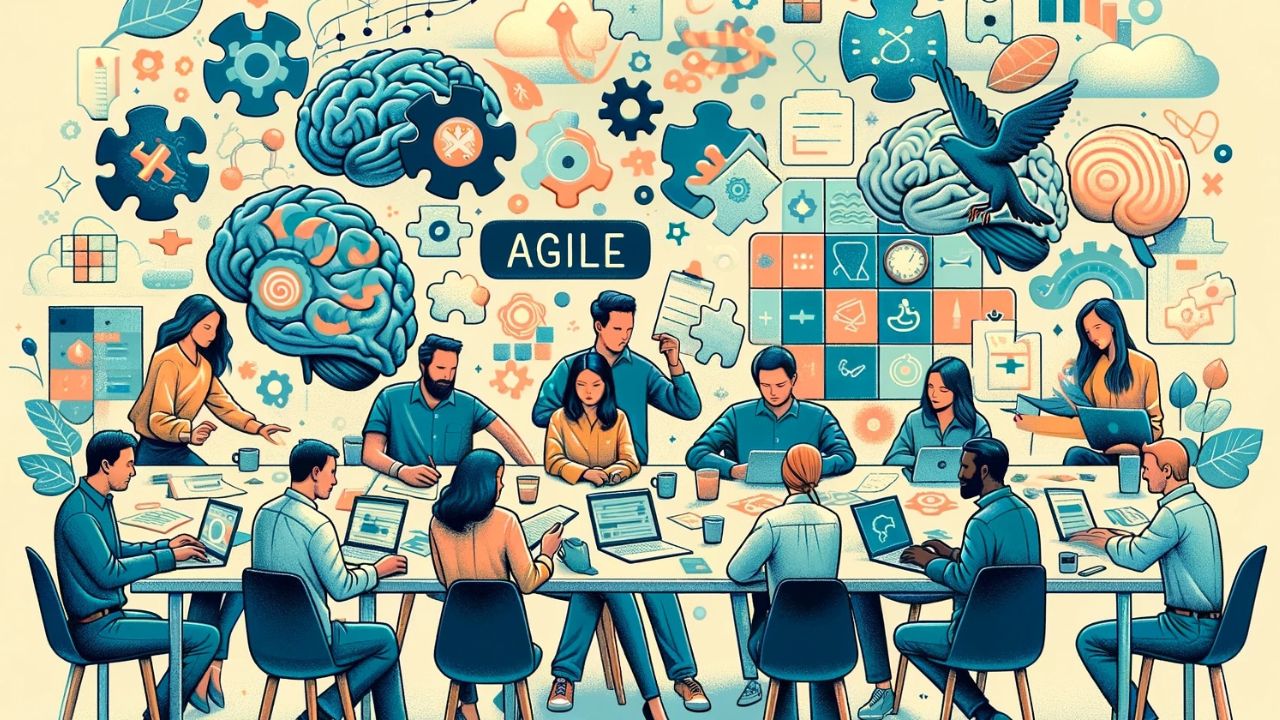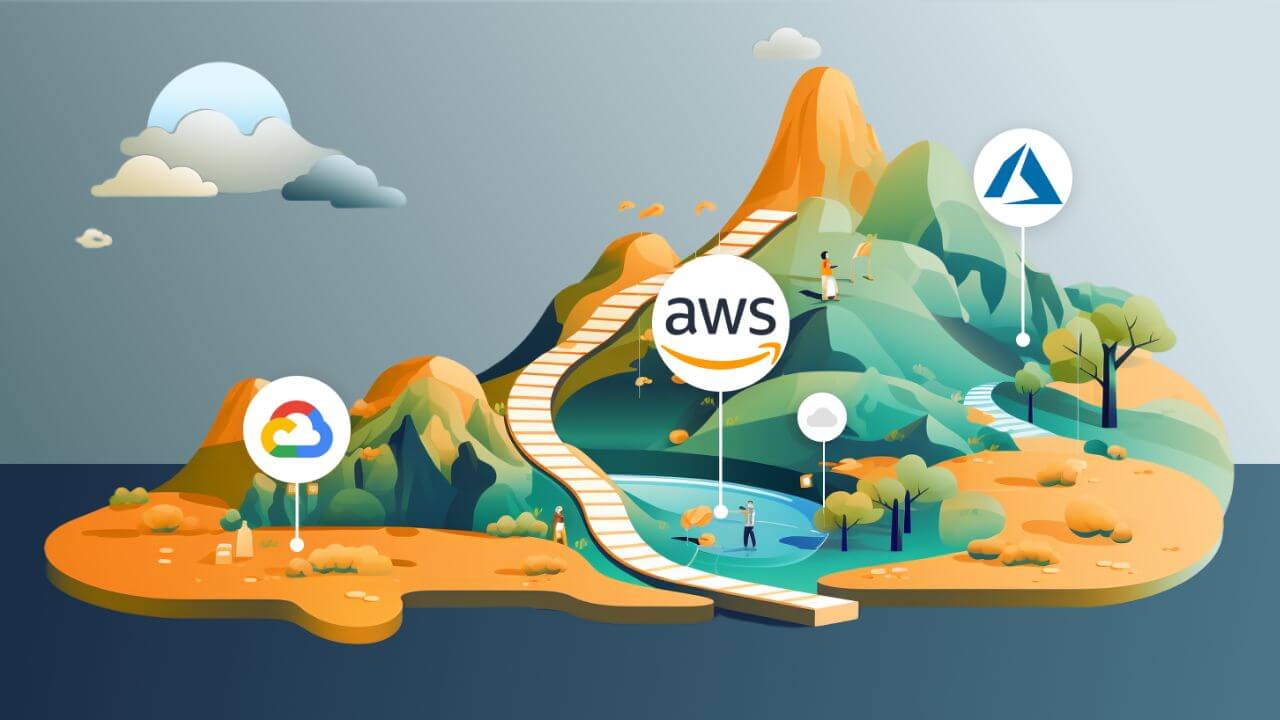Hey there! Ever wondered how your smartphone’s voice assistant gets your requests spot on? Or how online stores seem to know just what you need?
Well, that’s Artificial Intelligence (AI) for you! AI is like the cool new kid on the technology block. It’s changing the way we live and work, making things easier and more efficient. But why should we care about AI?
Well, understanding the benefits of Artificial Intelligence can help us make the most of this powerful tool. So, buckle up as we dive into the fascinating world of AI and explore its numerous benefits.
Trust me, by the end of this journey, you’ll be as amazed by AI as I am. Let’s get started, shall we?
- How AI Enhances Efficiency?
- Advantages of AI in Healthcare
- How AI Benefits to Businesses?
- AI’s Role in Improving Decision-Making
- How AI Optimizes Resource Utilization?
- How AI Contributes to Personalization?
- Benefits of Artificial Intelligence in Education
- How AI Enhances Predictive Analytics?
- Discussion on The Societal Impact of AI
- Conclusion
- FAQs Related to Benefits Of AI
How AI Enhances Efficiency?
AI enhances efficiency in several ways, impacting various industries and aspects of our lives. Here are some key points to notice:
✅ Automating Tasks
Artificial Intelligence excels at taking over repetitive, rule-based tasks, freeing up human time and resources for more complex work. This includes tasks like:
- Data entry and processing: AI can automatically extract and organize information from documents, emails, and other sources, saving hours of manual work.
- Customer service: Chatbots powered by AI can handle basic inquiries and resolve simple issues, reducing the burden on human representatives.
- Manufacturing and logistics: Robots guided by AI can perform tasks like welding, assembly, and warehouse picking with unmatched speed and precision.
✅ Optimizing Processes
AI algorithms can analyze large datasets to identify patterns and trends, enabling businesses to optimize their operations in various ways:
- Predictive maintenance: Artificial Intelligence can analyze sensor data from machines to predict potential failures before they occur, preventing costly downtime.
- Supply chain management: AI can optimize delivery routes, inventory levels, and resource allocation, leading to reduced costs and improved efficiency.
- Targeted marketing: AI can personalize marketing campaigns to individual customers, increasing engagement and conversion rates.
✅ Data-Driven Decision Making
AI can analyze vast amounts of data to provide insights and recommendations that would be impossible for humans to process alone. This allows for more informed and data-driven decision making in various fields like:
- Finance: AI can assess creditworthiness, detect fraud, and recommend investment strategies.
- Health: Artificial Intelligence can analyze medical images, diagnose diseases, and predict patient outcomes, leading to more personalized and effective health.
- Government: AI can analyze social media data to identify potential threats, optimize resource allocation, and predict policy outcomes.
Real-world Examples
- Manufacturing: AI-powered robots assemble cars with pinpoint accuracy and tireless efficiency, cranking out more products in less time.
- Healthcare: AI algorithms analyze medical scans to detect diseases earlier, leading to faster and more effective treatment.
- Finance: AI helps predict fraud and manage risk, protecting financial institutions and consumers alike.
- Transportation: AI-powered traffic management systems optimize traffic flow, reducing congestion and saving commuters precious time.
✅ Why is AI Important in The Future? ✅
Advantages of AI in Healthcare
Artificial Intelligence is rapidly transforming the healthcare landscape by offering numerous advantages, including:
✅ Improved Diagnostic Accuracy: AI algorithms can analyze vast amounts of medical data, including medical images, patient records, and genetic information, to identify patterns and make diagnoses with greater accuracy and speed compared to traditional methods. This can lead to earlier detection of diseases and improved treatment outcomes.
✅ Personalized Medicine: AI can be used to tailor treatment plans to individual patients based on their unique genetic makeup, medical history, and lifestyle factors. This personalized approach can lead to more effective treatments and fewer side effects.
✅ Drug Discovery and Development: AI can analyze vast datasets of chemical compounds and patient data to accelerate the discovery and development of new drugs. This can lead to faster development of life-saving medications for various diseases.
✅ Enhanced Administrative Efficiency: AI can automate many administrative tasks in healthcare, such as scheduling appointments, managing medical records, and processing insurance claims. This can free up healthcare professionals to spend more time with patients and reduce administrative costs.
✅ Remote Patient Monitoring: AI-powered wearables and sensors can continuously monitor patients’ health data, allowing for early detection of potential health problems and timely intervention. This is particularly beneficial for patients with chronic conditions or those living in remote areas.
✅ Improved Surgical Precision: AI-powered surgical robots can assist surgeons in performing complex procedures with greater precision and accuracy, leading to faster recovery times and fewer complications for patients.
✅ Uncover The Drawbacks of Artificial Intelligence ✅
AI’s Impact on Healthcare
The impact of AI in healthcare is multifaceted and raises important discussions:
- Ethical Considerations: Issues like data privacy, security, and algorithmic bias need careful consideration to ensure fair and equitable access to AI-powered healthcare for all.
- Human Interaction: While Artificial Intelligence can automate many tasks, human interaction and expertise remain crucial in healthcare. The focus should be on AI augmenting, not replacing, healthcare professionals.
- Accessibility and Affordability: Ensuring equitable access to AI-powered healthcare technologies across different socioeconomic groups and geographical locations is essential.
- Regulation and Governance: Regulatory frameworks need to be developed to ensure the safety, efficacy, and ethical use of AI in healthcare.
Case Studies of AI in Healthcare
- DeepMind’s Artificial Intelligence reduces false positives in breast cancer screening by 5.4%, potentially saving thousands of women from unnecessary biopsies.**
- Babylon’s AI chatbot provides 24/7 symptom analysis and triage, helping patients get the right care faster.
- Zebra Medical Vision’s AI analyzes medical images to detect diseases like pneumonia and tuberculosis with high accuracy.
- Viz.ai’s AI helps radiologists detect strokes faster, leading to quicker treatment and improved patient outcomes.
How AI Benefits to Businesses?
Artificial Intelligence offers a wide range of potential benefits to businesses, from boosting efficiency and productivity to improving customer experience and driving innovation. Here are some key areas where AI can make a positive impact:
- Automation: AI can automate repetitive tasks like data entry, scheduling, and report generation, freeing up human employees for more strategic work.
- Improved processes: AI can analyze data to identify bottlenecks and inefficiencies in workflows, leading to optimized processes and faster turnaround times.
- Predictive maintenance: Artificial Intelligence can analyze sensor data from equipment to predict failures before they occur, preventing costly downtime and repairs.
- Personalized recommendations: AI can analyze customer data to recommend products, services, and content that are relevant to their individual needs and preferences.
- Chatbots and virtual assistants: AI-powered chatbots and virtual assistants can provide 24/7 customer service, answer questions, and resolve issues quickly and efficiently.
- Sentiment analysis: AI can analyze customer reviews and social media mentions to understand customer sentiment and identify areas for improvement.
- Market insights: AI can analyze market data to identify trends, opportunities, and threats, helping businesses make informed decisions about pricing, marketing, and product development.
- Risk assessment: Artificial Intelligence can analyze financial data and other factors to assess risks and help businesses make better investment decisions.
- Fraud detection: AI can analyze transaction data to identify fraudulent activity and protect businesses from financial losses.
- New product development: AI can be used to design and develop new products and services that are more innovative and meet the needs of customers better.
- R&D: AI can accelerate research and development by analyzing vast amounts of data and identifying patterns that humans might miss.
- Staying ahead of the curve: By adopting AI early, businesses can gain a competitive advantage and stay ahead of the curve in their industries.
Examples of Businesses Leveraging AI
- Sephora: This well-known cosmetics brand is using Artificial Intelligence along with Augmented Reality and RFID technology to give their customers a unique and personalized shopping experience.
- Perfect Corp: The company behind popular beauty apps like YouCam and YouCam Perfect is using AI to take customer experience to the next level.
- Rocketbots: This innovative company is using AI to revolutionize customer service.
- H2O.ai: This tech company is using AI to provide businesses with advanced analytics and machine learning solutions, helping them make data-driven decisions and grow.
- Ayasdi (Symphony.ai): Ayasdi is leveraging Artificial Intelligence to improve operational efficiency.
AI’s Role in Improving Decision-Making
Artificial Intelligence is a powerful tool that aids in decision-making by evaluating data and variables in complex situations.
This enables companies and organizations to make faster, more well-informed decisions than when humans tackle the problems without assistance.
Artificial Intelligence can process vast amounts of data at incredible speeds, enabling quick analysis and generating insights in real-time. This ultimately leads to faster and more efficient decision-making processes.
Instances of AI-Driven Decision Making
- Google: Google uses a deep learning system to better understand search prompts and provide personalized results.
- IBM: IBM has optimized its decision making to solve complex problems in a fraction of the time it once required.
- Microsoft: Microsoft believes Artificial Intelligence can help individuals tackle life’s biggest challenges with ease.
- Deloitte: Deloitte uses AI to improve its decision-making processes.
- Salesforce: Salesforce leverages AI to enhance its decision-making processes.
How AI Optimizes Resource Utilization?
Artificial Intelligence is a key player when it comes to optimizing resource utilization. It’s like having a super-efficient manager who can analyze complex data, make quick decisions, and ensure resources are used to their full potential. This ability to handle complex tasks swiftly and accurately significantly boosts resource utilization.
Examples of Resource Optimization Using AI
- IBM: IBM is a great example of a company that’s using AI to manage data more efficiently and effectively.
- Quickbase: Quickbase is another company that’s leveraging Artificial Intelligence to analyze large data sets quickly and accurately, which helps in forecasting resource demands.
- Forbes: Forbes has reported on how AI diagnostic tools are being used in healthcare to make evaluations more cost-effective and accurate, allowing doctors to serve more patients.
- PredictModel: PredictModel is a manufacturing company that’s using AI to optimize production schedules, minimize downtime, and reduce waste.
How AI Contributes to Personalization?
Artificial Intelligence is a key player in creating personalized user experiences. It’s like having a super-smart assistant who can analyze complex data, understand user preferences, and tailor experiences accordingly.
AI can process vast amounts of data at incredible speeds, enabling quick analysis and generating insights in real time. This ultimately leads to more personalized and efficient user experiences.
Illustrations of AI-Driven Personalization
- Amazon: Amazon uses AI to suggest products tailored to individual browsing and purchase histories, driving customer engagement and boosting sales.
- Netflix: Netflix uses AI to analyze viewing habits and recommend shows and movies that align with user preferences, enhancing the viewing experience.
- Spotify: Spotify leverages AI to curate personalized playlists based on users’ listening habits, making music discovery effortless and enjoyable.
Benefits of Artificial Intelligence in Education
Artificial Intelligence is transforming the education sector. It’s like having a super-smart tutor who can tailor learning experiences to each student’s unique needs.
This makes learning more effective and engaging. Plus, AI can take care of administrative tasks, freeing up teachers to focus on what they do best – teaching.
Case Studies of AI in Education
- Harvard University: At Harvard, researchers are investigating how AI can enhance learning experiences. They envision a future where AI and educators work together to transform education.
- UNESCO: UNESCO is keen on using AI to achieve their Education 2030 Agenda. They believe AI can help bridge the gap in access to knowledge and research.
- Westville School District: This school district has successfully integrated AI into their education system, enhancing the learning experience for their students.
How AI Enhances Predictive Analytics?
AI is a game-changer when it comes to predictive analytics. It’s like having a super-smart analyst who can sift through massive datasets, spot complex patterns, and scale predictive models.
This ability to handle complex tasks swiftly and accurately significantly boosts the precision of business trend forecasts and minimizes errors.
Examples of Predictive Analytics Using AI
- Insurance: Insurance companies are using predictive analytics to offer more personalized and competitive policies, ensuring the stability and profitability of their portfolios.
- Financial Services: Predictive analytics is playing a key role in shaping strategic choices, bolstering trust, and enhancing the stability and profitability of financial institutions.
- Retailers and CPG Companies: Retailers and consumer packaged goods (CPG) companies are leveraging predictive analytics to enhance their marketing ROI, strengthen customer relationships, and maintain a competitive edge.
- NASA: NASA is using AI-powered search to accelerate science.
- Toyota: Toyota is transforming its IT service desk with AI.
Discussion on The Societal Impact of AI
Artificial Intelligence integration has numerous societal benefits. It can enhance efficiency and precision across various sectors. In healthcare, AI can aid in early disease detection and personalized treatment plans, potentially saving lives. In education, AI-powered tools can provide customized learning experiences, bridging educational gaps.
AI can also optimize resource allocation in urban planning and environmental conservation. For instance, AI can analyze traffic patterns to improve city infrastructure or use satellite imagery to monitor deforestation.
Examples of Societal Benefits
- Healthcare: AI is revolutionizing healthcare by enhancing diagnostics, treatment plans, and patient care.
- Transportation: AI and machine learning are driving major innovations in transportation.
- Prediction of Natural Disasters: AI can help predict natural disasters, aiding in timely evacuations and potentially saving lives.
- Farming: AI is optimizing farming practices, leading to increased yield and sustainability.
- Economy: AI is strengthening the economy by creating new job opportunities and driving growth.
- Smart Cities: AI is improving environmental planning, service delivery, energy utilization, resource management, and crime prevention in smart cities.
Conclusion
Finally, we’ve covered through the various ways AI enhances efficiency, from automating tasks to optimizing processes and enabling data-driven decisions. We’ve seen its transformative impact in healthcare, business, and education.
We’ve also explored how AI contributes to personalization, optimizes resource utilization, and enhances predictive analytics. The societal impact of AI was also discussed, shedding light on its broader implications.
This comprehensive exploration of the benefits of AI underscores its potential to significantly improve various aspects of our lives. As we continue to explore and understand AI, we can look forward to even more benefits in the future.
Remember, the journey of understanding AI is ongoing, and every question you may have is a step forward in that journey.
FAQs Related to Benefits Of AI
How Does AI Improve Decision-Making Processes?
AI can improve decision-making by: analyzing massive amounts of data, reducing human bias, and simulating complex scenarios
How Does AI Impact Job Creation?
While AI automates some tasks, it also creates new jobs: AI development and maintenance, data analysis and interpretation, and AI-powered fields
How Can AI Benefit Your Work?
AI can benefit your work by automating repetitive tasks, Providing data-driven insights, generating creative content.
Is AI Helpful or Harmful?
AI can be both helpful and harmful. It’s helpful in enhancing efficiency, precision, and personalization across sectors. However, it can be harmful because of privacy concerns and job displacement. Responsible deployment is key to maximizing its benefits and minimizing harm.
Why Do We Need AI?
We need AI because Human limitations make it impossible to analyze vast amounts of data effectively and AI can easily tackle challenges in fields like climate change and space exploration that are beyond human capabilities.





